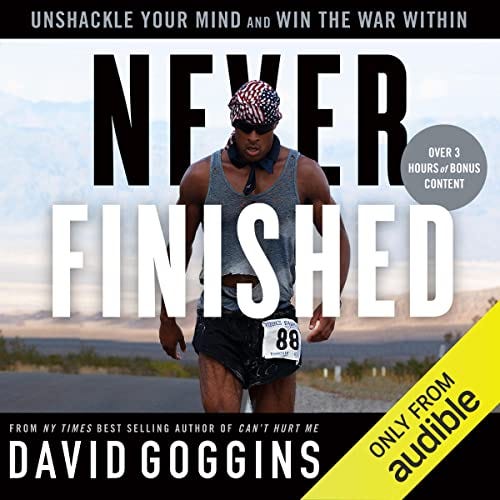Never Finished by David Goggins:
The story of David Goggins, labeled the 'hardest man alive,' continues from where 'Can't Hurt Me' left off.
Keep reading with a 7-day free trial
Subscribe to Elice Island Newsletter to keep reading this post and get 7 days of free access to the full post archives.


